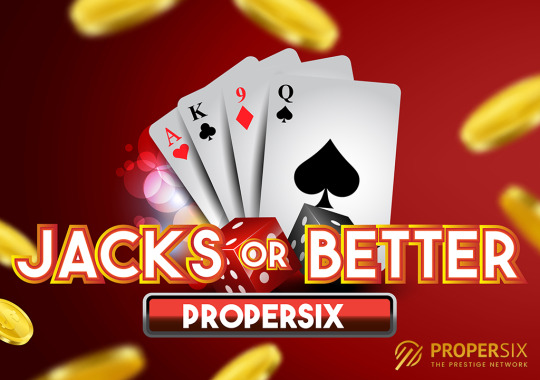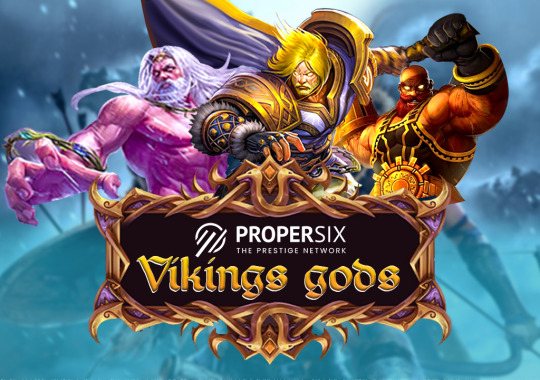#Bones- the man the legend the 3rd wheel
Text

Another typical trip in the turbo lift for Spock Kirk and Bones
#Bones- the man the legend the 3rd wheel#but he will not let you forget he’s there!#damn it Jim! I’m a doctor#spirk#spock and kirk#bones mccoy#star trek tos#my art#digital art#star trek art#illustration
4K notes
·
View notes
Text
Unlisted Fandoms Challenge Update
Coming out of the first weekend of FTH2022 signups we've added TWENTY-TWO new fandoms to the write in offerings, bringing us to a total of 119! New since the last update are -
Cowboy Bebop
Dimension 20
Fruits Basket
Generation Kill
Grace and Frankie
Greedfall
Happiest Season
House MD
Megamind
Nancy Drew (TV 2019)
October Daye
Order of the Stick
Sanditon
Shadow and Bone
Spartacus
Spiritpact/Qing Li
The Disastrous Life of Saiki K
The Lone Ranger
To the Moon
Trash of the Count's Family
Wander over Yander
What We Do in the Shadows
Yu Yu Hakusho
On the leaderboard, SVSSS (Scum Villain's Self-Saving System) has not only hung onto the lead, it's increased it! We still have ties for 2nd place (Rusty Quill Gaming and SK8 the Infinity), 3rd (Bleach and The Maze Runner are now joined by Hunter X Hunter and The Terror), and 4th (Anne with an E/Anne of Green Gables and Roswell New Mexico). Several fandoms also received their second signup and moved up in the rankings.
Want to see one of your fandoms move up the list? Sign up to create fanworks and encourage your favorite fandom creator(s) to sign up too! Signups are open through Feb 13!
Full list below the cut -
12 SVSSS (Scum Villain's Self Saving System)
5 Rusty Quill Gaming Podcast
5 SK8 the Infinity
4 Bleach
4 Hunter X Hunter
4 The Maze Runner
4 The Terror (TV 2018)
3 Anne with an E / Anne of Green Gables
3 Roswell New Mexico
2 9-1-1 Lone Star
2 Cosmere - Stormlight Archive (Brandon Sanderson)
2 Eerie Indiana
2 Gilmore Girls
2 Grace and Frankie
2 House M.D.
2 Imperial Radch Series - Ann Leckie
2 London Spy
2 Lucifer (TV)
2 Musicals
2 Omniscient Reader's Viewpoint
2 Parasol Protectorate
2 Pokemon (Games)
2 Red White and Royal Blue
2 Spartacus
2 Succession
2 The Green Hornet
2 The Lone Ranger
2 Tortall
2 Tower of God
2 Transformers Prime G1 IDW and Animated
2 Trash of the Count's Family (Lout of the Count's Family)
2 Yu Yu Hakusho
1 Actor RPF (any combo of Luca - Marwan - Ale - Matthias)
1 All American
1 Ballet Canon (eg Swan Lake/Giselle/La Sylphide)
1 Banana Fish
1 Bioshock 1&2
1 Black Sails
1 Black Summer
1 Cowboy Bebop (Netflix 2021)
1 Death Note
1 Destiny 2
1 Dice Punks
1 Digimon
1 Dimension 20
1 Dirk Gently's Holistic Detective Agency
1 Dragon Ball
1 Dragonriders of Pern Series - Anne McCaffrey
1 Erha /2ha /Husky and His White Cat Shizun
1 Euphoria
1 Fear Street
1 Formula 1 RPF
1 Fruits Basket
1 Generation Kill
1 Giselle (ballet)
1 Golden Kamuy
1 Greedfall
1 Grimm
1 Gris (Video Game)
1 Hamilton
1 Happiest Season (movie)
1 Hot Fuzz
1 Inuyasha
1 Jujutsu Kaisen
1 Jurassic Park/Jurassic World (movie trilogies)
1 Justified
1 Lord Peter Wimsey
1 Major Grom
1 Malevolent (podcast)
1 Megamind (2010)
1 Minecraft: Story Mode
1 Miss Marple/Marple
1 Mob Psycho 100
1 Nancy Drew (TV 2019)
1 Nine Worlds - Victoria Goddard
1 October Daye Series - Seanan McGuire
1 One Direction
1 Order of the Stick
1 Outlast games
1 Pacific Rim
1 Peaky Blinders (BBC)
1 Sanditon (TV 2019)
1 Shadow and Bone (TV)
1 Slayers (Hajime Kanzaka)
1 Smallville
1 Smile For Me
1 South Park
1 Spinning Silver (Naomi Novik)
1 Spiritpact/Ling Qi
1 Stargate: Atlantis
1 Suits (TV) - Marvey
1 T. Kingfisher Clocktaur Duology and Paladin Romances
1 Tamora Pierce works
1 Ted Lasso
1 The Disastrous Life Of Saiki K.
1 The Goblin Emperor
1 The Hour
1 The Iliad/The Song of Achilles
1 The Last Kingdom
1 The Legend of Drizzt
1 The Man From UNCLE (TV)
1 The Murderbot Diaries
1 The Penumbra Podcast
1 The Queen's Thief
1 The Walking Dead (TV)
1 Tianbao Fuyao Lu
1 To the Moon (video game series)
1 Umbrella Academy
1 Undertale
1 Veronica Mars
1 Wander over Yonder
1 What We Do In The Shadows
1 Wheel of Time (TV Series only)
1 White Collar
1 Wynonna Earp (TV series)
1 X-Men (Alternate Timeline Movies)
1 Yakuza/Ryuu Ga Gotoku
1 Yona of the Dawn
41 notes
·
View notes
Text
crypto slots

Game is a very peculiar side of the human life that has its own laws, which do not fit into the framework of traditional logic.
Game is a very peculiar side of the human life that has its own laws, which do not fit into the framework of traditional logic. Here reigns His Majesty Chance and everything is relative: the weak can defeat the strong, the cunning can make a fool of himself, the poor can become rich, and vice versa.
Gamble opens up new possibilities of the personality, which are often not displayed in ordinary life. Almost everybody wants to get rich at once, without any efforts. Game gives a hope for this, but luck is destiny of the chosen ones.
Origins of the game.
Game and gamble has followed the humanity since its first steps. A grain of gamble is evident almost in everything, starting from hunting in the primitive society and up to major financial deals in the 21st century. Elements of game are inherent to many competitions and entertainments, which our forefathers arranged. For example, it is evident in competitions in strength and deftness, which were later transformed into famous tournaments. Later on the first gambling games appeared. They were based on the element of chance, trying one’s destiny.
The historians believe that the very first game was casting various stones, shells, animals' bones – these objects were the prototypes of the dice. Documental evidence of the first games is stored in the British Museum. Among this evidence are dice, made by an unknown Egyptian craftsman from the elephant’s tusk (16th century B.C.) and a board for playing draughts, also called checkers which belonged to the queen Hatchepsut (1600 B.C.).
Historical evidence attests that all ancient civilizations played dice. Astragalus,i.e. fetlocks of the animals, were mostly used as dice. The word "astragalus" also referred to tetrahedral bricks with indentations, which more resembled modern dice - hexahedral bricks with somewhat rounded corners, in which the opposite facets, when added up, always amount to seven.
In the old days the people played odd and even, cast dice in the circle or threw them, trying to hit certain openings. Dice were also widely used for fortune-telling. It is also interesting that the players treated dice with nearly reverent trepidation, as if the dice were alive: the players talked to them, whispered charms and tried to persuade them to bring victory.
crypto slots

Since their emergence dice almost at once became one of the most venturesome gambling games. The players placed everything in their bet: money, things, dwelling and even freedom (ancient Germans who lost in dice humbly became slaves). At the same time there appeared various lawful bans on this seemingly harmless game. For instance, in the 3rd century B.C. the first known in history law against gambling games was adopted. It was called Lex aleatoria (alea means a die).
In Ancient Greece there was a legend that the Olympic gods divided the "spheres of influence" by casting lots (Zeus got the Olympus, Poseidon received the ocean, and Hades came to rule the underworld). The laws of Ancient Rome formally forbade gambling games, but there was no specific punishment for violation of the ban. The only "penalty" for the players was the right of the defeated player to reclaim everything he lost, if he though that he was wrongly or unfairly defeated. Officially the games were allowed only once a year, during the Saturnalia (annual festivities in honour of the god Saturn).
Throughout the years the significance of the game increased. There appeared new game contrivances, for example cards. Some researchers argue that the first playing-cards appeared in China. In the Chinese dictionary, Ching-tsze-tung (1678), mentions that cards were created in 1120 (according to the Christian chronology), and in 1132 they were already widely used. Cards at those times were long and narrow plates with numbers from 1 to 14 on them. Four suits symbolized four seasons, and the number of cards (52) corresponded to the number of weeks in the year.
The prototype of the modern deck of cards is the Tarot cards. The first documentary witness that we know of refers to 1254, when Saint Louis issued an edict that forbade card game within France under the fear of punishment with a whip.
Other researchers call Egypt the homeland of cards. The Tarot deck was used for fortune-telling. It had 78 sheets - arkana (22 seniors and 56 juniors). The pictures on the senior arkans correspond to golden tables, which are preserved in the dungeon of the god Tote in Egypt. Their names are as follows: 1. Fool; 2. Magician; 3. Priestess; 4. Hostess; 5. Host; 6. High priest; 7. Lovers; 8. Chariot; 9. Power; 10. Hermit; 11. The wheel of fortune; 12. Justice; 13. The hanged man; 14. Death; 15. Abstinence; 16. Devil; 17. Tower; 18. Star; 19. Moon; 20. Sun; 21. Court; 22. Peace.
It is considered that cards reached Europe in the 10-11th century, during the crusades to the Near East. Other argue that the majority of card games were born in France, which is called the homeland of European cards. The first factory-made deck of Tarot cards included 56 cards of four suits (swords, wands, money and cups). Besides there were 22 trump-cards with numbers from 1 to 21. Every card had a name of its own: the emperor, the empress, the nun, the conjurer, the fool etc. Thus, the deck incorporated 97 cards. Gradually it was substituted by new cards, which more closely resembled the modern ones.
It is surprising that the symbols of suits and the suits themselves did not change since 15th century. In the Middle Ages card games were very popular among various strata of population, ranging from a king's court to the common people. By the way, in those times cards were not only a means to beguile the time, but also a symbol of the society structure: hearts embodied the priests, diamonds meant the bourgeoisie, spades represented officers and aristocracy, clubs referred to the peasants.

Modern card games (poker, blackjack) arose in the U.S. in the second half of the 19th century. It is difficult to name them all. There are card games for adults and children, games for training logic and wit - and there are games just to beguile the time. The more mature is the individual, the more complex are the games he plays. Having become financially independent, he lets loose his gamble: makes bets, plays in the lotteries, makes bets on the totalizator and finally funds himself in the very temple of game, the casino. Here the individual totally submits to the game, which sharpens his feelings and emotions and makes him forget everything, but the green cloth and roulette wheel. The thirst for such feelings lures again and again those people, who have at least once been in the casino. Meanwhile, the skeptics say: "If you want to win in the casino, buy one of those".
for more into click here
1 note
·
View note
Text
Casino Slots

Game is a very peculiar side of the human life that has its own laws, which do not fit into the framework of traditional logic.
Crypto Slots
Game is a very peculiar side of the human life that has its own laws, which do not fit into the framework of traditional logic. Here reigns His Majesty Chance and everything is relative: the weak can defeat the strong, the cunning can make a fool of himself, the poor can become rich, and vice versa.
Gamble opens up new possibilities of the personality, which are often not displayed in ordinary life. Almost everybody wants to get rich at once, without any efforts. Game gives a hope for this, but luck is destiny of the chosen ones.
Origins of the game.
Game and gamble has followed the humanity since its first steps. A grain of gamble is evident almost in everything, starting from hunting in the primitive society and up to major financial deals in the 21st century. Elements of game are inherent to many competitions and entertainments, which our forefathers arranged. For example, it is evident in competitions in strength and deftness, which were later transformed into famous tournaments. Later on the first gambling games appeared. They were based on the element of chance, trying one’s destiny.
The historians believe that the very first game was casting various stones, shells, animals' bones – these objects were the prototypes of the dice. Documental evidence of the first games is stored in the British Museum. Among this evidence are dice, made by an unknown Egyptian craftsman from the elephant’s tusk (16th century B.C.) and a board for playing draughts, also called checkers which belonged to the queen Hatchepsut (1600 B.C.).
Historical evidence attests that all ancient civilizations played dice. Astragalus,i.e. fetlocks of the animals, were mostly used as dice. The word "astragalus" also referred to tetrahedral bricks with indentations, which more resembled modern dice - hexahedral bricks with somewhat rounded corners, in which the opposite facets, when added up, always amount to seven.
In the old days the people played odd and even, cast dice in the circle or threw them, trying to hit certain openings. Dice were also widely used for fortune-telling. It is also interesting that the players treated dice with nearly reverent trepidation, as if the dice were alive: the players talked to them, whispered charms and tried to persuade them to bring victory.

Since their emergence dice almost at once became one of the most venturesome gambling games. The players placed everything in their bet: money, things, dwelling and even freedom (ancient Germans who lost in dice humbly became slaves). At the same time there appeared various lawful bans on this seemingly harmless game. For instance, in the 3rd century B.C. the first known in history law against gambling games was adopted. It was called Lex aleatoria (alea means a die).
In Ancient Greece there was a legend that the Olympic gods divided the "spheres of influence" by casting lots (Zeus got the Olympus, Poseidon received the ocean, and Hades came to rule the underworld). The laws of Ancient Rome formally forbade gambling games, but there was no specific punishment for violation of the ban. The only "penalty" for the players was the right of the defeated player to reclaim everything he lost, if he though that he was wrongly or unfairly defeated. Officially the games were allowed only once a year, during the Saturnalia (annual festivities in honour of the god Saturn).
Throughout the years the significance of the game increased. There appeared new game contrivances, for example cards. Some researchers argue that the first playing-cards appeared in China. In the Chinese dictionary, Ching-tsze-tung (1678), mentions that cards were created in 1120 (according to the Christian chronology), and in 1132 they were already widely used. Cards at those times were long and narrow plates with numbers from 1 to 14 on them. Four suits symbolized four seasons, and the number of cards (52) corresponded to the number of weeks in the year.
The prototype of the modern deck of cards is the Tarot cards. The first documentary witness that we know of refers to 1254, when Saint Louis issued an edict that forbade card game within France under the fear of punishment with a whip.
Other researchers call Egypt the homeland of cards. The Tarot deck was used for fortune-telling. It had 78 sheets - arkana (22 seniors and 56 juniors). The pictures on the senior arkans correspond to golden tables, which are preserved in the dungeon of the god Tote in Egypt. Their names are as follows: 1. Fool; 2. Magician; 3. Priestess; 4. Hostess; 5. Host; 6. High priest; 7. Lovers; 8. Chariot; 9. Power; 10. Hermit; 11. The wheel of fortune; 12. Justice; 13. The hanged man; 14. Death; 15. Abstinence; 16. Devil; 17. Tower; 18. Star; 19. Moon; 20. Sun; 21. Court; 22. Peace.
It is considered that cards reached Europe in the 10-11th century, during the crusades to the Near East. Other argue that the majority of card games were born in France, which is called the homeland of European cards. The first factory-made deck of Tarot cards included 56 cards of four suits (swords, wands, money and cups). Besides there were 22 trump-cards with numbers from 1 to 21. Every card had a name of its own: the emperor, the empress, the nun, the conjurer, the fool etc. Thus, the deck incorporated 97 cards. Gradually it was substituted by new cards, which more closely resembled the modern ones.
It is surprising that the symbols of suits and the suits themselves did not change since 15th century. In the Middle Ages card games were very popular among various strata of population, ranging from a king's court to the common people. By the way, in those times cards were not only a means to beguile the time, but also a symbol of the society structure: hearts embodied the priests, diamonds meant the bourgeoisie, spades represented officers and aristocracy, clubs referred to the peasants.
Modern card games (poker, blackjack) arose in the U.S. in the second half of the 19th century. It is difficult to name them all. There are card games for adults and children, games for training logic and wit - and there are games just to beguile the time. The more mature is the individual, the more complex are the games he plays. Having become financially independent, he lets loose his gamble: makes bets, plays in the lotteries, makes bets on the totalizator and finally funds himself in the very temple of game, the casino. Here the individual totally submits to the game, which sharpens his feelings and emotions and makes him forget everything, but the green cloth and roulette wheel. The thirst for such feelings lures again and again those people, who have at least once been in the casino. Meanwhile, the skeptics say: "If you want to win in the casino, buy one of those".
For more info click here.
0 notes